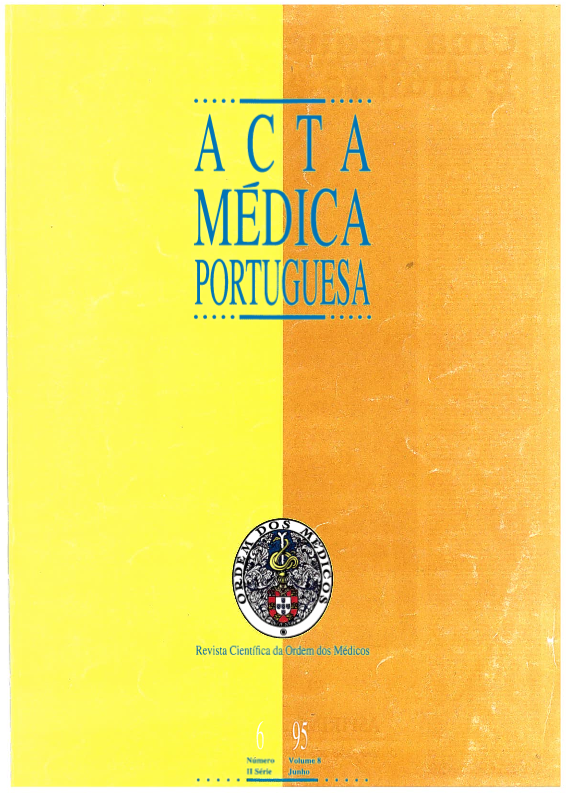The quality of life after tubal ligation.
DOI:
https://doi.org/10.20344/amp.2716Abstract
To analyse the attitude, physical and psychological repercussions of sterilisation on Portuguese women in order to determine their quality of life.Retrospective study of women submitted to sterilisation between 1988 and 1991, by means of a questionnaire mailed in June 1992.Family planning clinic, S. Francisco Xavier Hospital, Lisbon.Between 1988 and 1991, 540 women were sterilised at the Gynaecology/Obstetrics Department of S. Francisco Xavier, 308 of which were included in the study (women who were sterilised with a pathology which might interfere with the results and those who were sterilised during a caesarean section, post partum or post abortion were excluded). MAIN DETERMINATIONS: Descriptive and demographic data taken from the clinical files and the results of a mailed questionnaire with eleven groups of questions on their attitudes, opinions and behaviour as well as gynaecological and sexual complaints, all with regard to sterilisation.106 women (34.5%) replied to the mailed questionnaire. An overwhelming majority felt satisfied (97.1%) and well informed (98%) regarding sterilisation. Sexual satisfaction and coital frequency improved or remained the same in 92.1% of the women and a slightly lower number (85.3%) stated that their sexual interest had improved or remained the same. All the women stated that the sexual interest of their partners had not diminished. The symptoms which were most frequently referred to as being worse or which had recurred were alterations in the menstrual cycle (43.1%), dysmenorrhea (16.7%) and mastodynia (16.7%).The majority of women (3/4) presented good or very good results in terms of quality of life.Downloads
Downloads
How to Cite
Issue
Section
License
All the articles published in the AMP are open access and comply with the requirements of funding agencies or academic institutions. The AMP is governed by the terms of the Creative Commons ‘Attribution – Non-Commercial Use - (CC-BY-NC)’ license, regarding the use by third parties.
It is the author’s responsibility to obtain approval for the reproduction of figures, tables, etc. from other publications.
Upon acceptance of an article for publication, the authors will be asked to complete the ICMJE “Copyright Liability and Copyright Sharing Statement “(http://www.actamedicaportuguesa.com/info/AMP-NormasPublicacao.pdf) and the “Declaration of Potential Conflicts of Interest” (http:// www.icmje.org/conflicts-of-interest). An e-mail will be sent to the corresponding author to acknowledge receipt of the manuscript.
After publication, the authors are authorised to make their articles available in repositories of their institutions of origin, as long as they always mention where they were published and according to the Creative Commons license.









